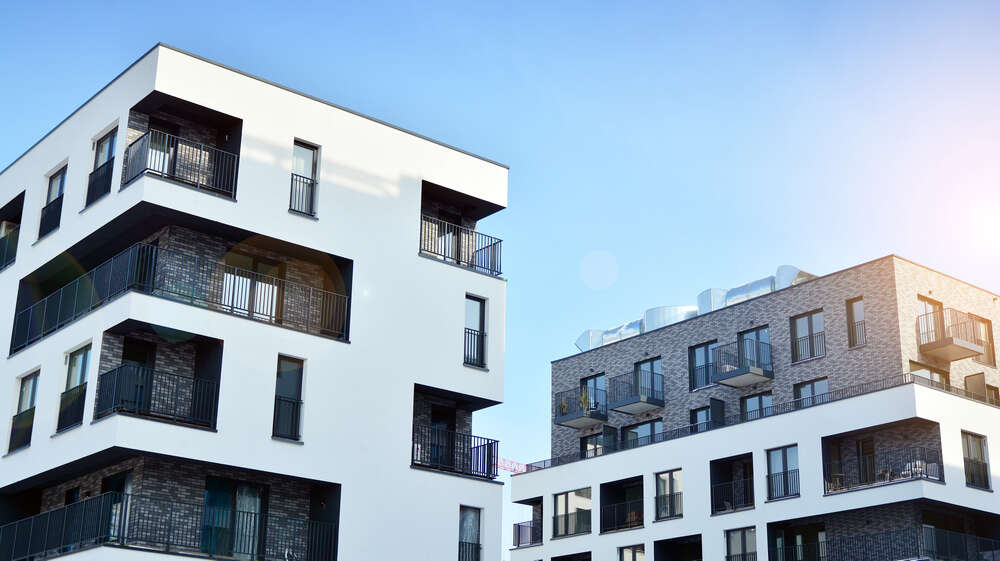
The European housing market finds itself at a critical juncture, as per the latest research conducted by RE/MAX Europe. With limited housing availability, rising inflation, escalating interest rates, and the burgeoning costs of property maintenance due to stringent environmental regulations, analysts have anticipated a slowdown in the real estate sector.

Despite these challenges, the desire to relocate to Europe remains unyielding. Driven by the pressing issue of affordable housing scarcity, Europeans are embracing creative solutions and displaying a growing preference for urban settings emphasising people-centred urban planning, according to the report.
Relocation remains a resolute choice
The survey covers more than 22,000 consumers across 22 countries and paints a picture of a European population undeterred by market challenges. A notable 39.3% of Europeans anticipate moving within the next two years. This keenness to relocate reflects the determination of individuals who are navigating affordable housing supply shortages, increasing prices, and stricter environmental regulations by reshaping their living paradigms to meet the 21st century’s demands.
Affordability stands out as a persistent issue in the housing market. Almost one in five Europeans (18.5%) cites financial constraints as the primary reason for their relocation. Looking forward, over 30% express concerns about finding affordable housing within their budget, highlighting the pressing need for comprehensive solutions in the housing sector.
The emergence of co-ownership
With affordability dwindling, co-ownership is exceeding its traditional boundaries and emerging as an attractive means to access the property ladder, according to the report. A notable 65% of Europeans would consider co-owning a property with unrelated individuals, be they friends, colleagues or even strangers. This new approach is not just about second homes; it serves as a pathway to properties that might have been financially out of reach for many (21.6%). Additionally, co-ownership provides a shared shield against the financial and legal risks associated with sole ownership (19.7%).
Over half of Europeans (56.1%) can envision themselves residing in co-living spaces. These spaces offer private living quarters while providing shared access to various amenities. However, Europeans embrace this concept with enthusiasm if a wide array of facilities, including shared workspaces or games rooms, are available (25.3%). Co-living is also seen as a means to alleviate loneliness and isolation (21.2%).
Multigenerational appeal
While younger Europeans have traditionally shown more inclination towards communal living, the appeal of co-living is extending to older generations. Notably, almost half (49.4%) of individuals aged 35 and older would consider relocating to a co-living space, with companionship being a key motivator for the older demographic.
Michael Polzler, CEO of RE/MAX Europe, emphasised in a release “Europe’s evolving real estate landscape showcases the resilience and adaptability of its people and property market. Amidst the complexities of affordability, Europeans are moving towards fresh models of property ownership and communal living. This isn’t just about adapting to challenges; it’s about reshaping how and where we live.”
Towards smarter and sustainable cities
Convenience takes centre stage in urban planning. Approximately one-third (31.7%) of Europeans are now familiar with the concept of the 15-minute city, which advocates locating essential services within a 15-minute walk or bike ride from residents’ homes. A shorter daily commute is deemed beneficial by 55% of respondents, with almost half (44.8%) recognising the environmental advantages of 15-minute cities, reducing the need for extensive daily travel. Access to green spaces, especially in the wake of the pandemic, further attracts Europeans to these urban innovations.
The EU’s Green Deal and Fit for 55 programmes are also propelling sustainability to the top of homeowners’ priority lists. While easy changes like installing LED lighting have been popular, property owners are realising the need to invest in home energy generation, insulation, and energy efficiency measures. Neglecting these could result in property devaluation without further investment.
The shift towards renewable energy sources is a prominent trend, with nearly one in five Europeans (18.7%) already having solar panels on their properties. Over 40% of property owners expect to install solar power (43.2%) shortly, while a similar number advocate for greater use of sustainable building materials (40.2%) and environmentally conscious construction methods (36.4%).
The determination of Europeans to reshape their housing paradigms reflects the resilient and adaptable nature of both the people and the property market in the face of challenges.
[Read more: What is the capital city of each European country and their populations?]






